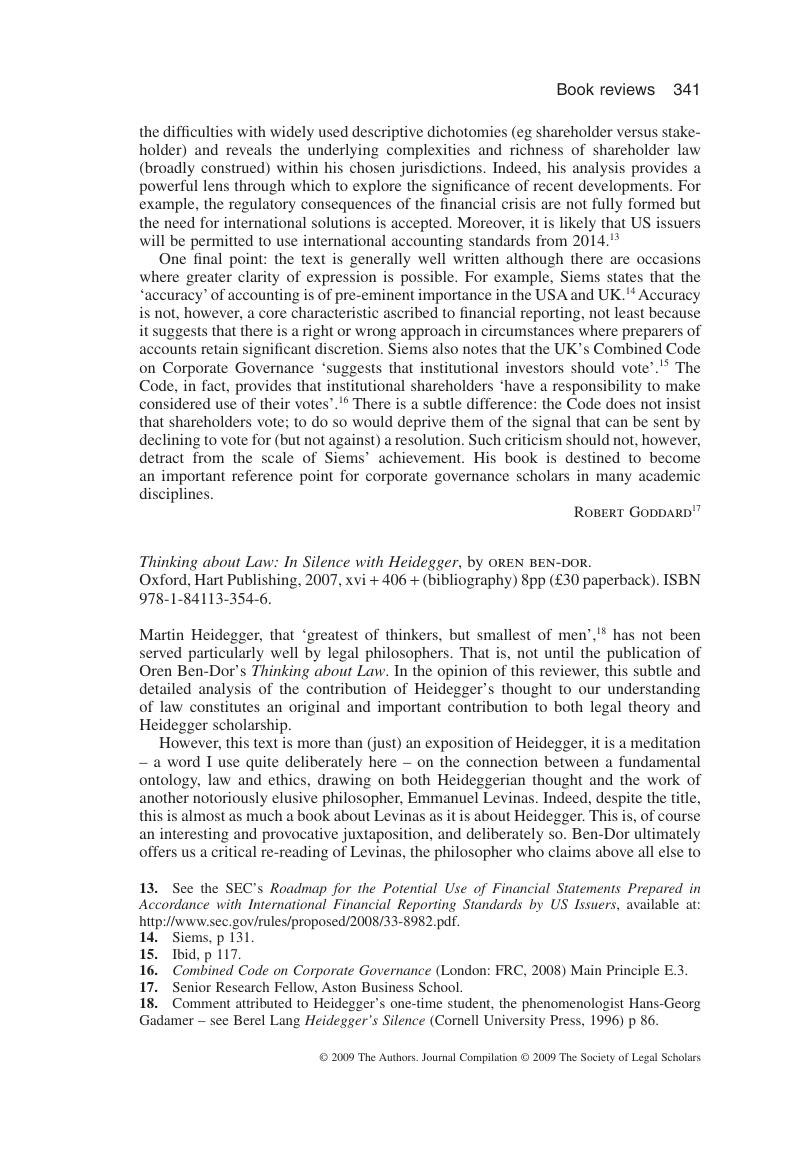No CrossRef data available.
Article contents
Thinking about Law: In Silence with Heidegger, by Oren Ben-Dor. Oxford, Hart Publishing, 2007, xvi + 406 + (bibliography) 8pp (£30 paperback). ISBN 978-1-84113-354-6.
Published online by Cambridge University Press: 02 January 2018
Abstract

- Type
- Book Review
- Information
- Copyright
- Copyright © Society of Legal Scholars 2009
References
18 Comment attributed to Heidegger's one-time student, the phenomenologist Hans-Georg Gadamer – see Lang, Berel Heidegger's Silence (Cornell University Press, 1996) p 86.Google Scholar
19 A criticism Ben-Dor himself acknowledges (p 33). Cf, eg, JN Findlay's observation ‘at the level at which Heidegger's existential person lives... there can be no values in any organised, systematically discussable sense, only the tortured preferences of the individual, into whose loneliness, styled “authenticity”, the whole organised world of value and being has been absorbed’ – Axiological Ethics (Macmillan, 1970), p 3.
20 Wood, D Thinking After Heidegger (Polity Press, 2002) p 7.Google Scholar
21 In this later Heidegger, Philip Buckley, rightly in my view, argues that ‘the “ethical life” is one that appears in the very disappearance of the calculating, objectified “subject” who is the focus of traditional moral theory... [Heidegger] sees in traditional ethics and its view of the “moral agent” precisely a type of subjectivity that must be “overcome” in order to arrive at an “original' ethics”’: Philip Buckley, R ‘Martin Heidegger: the “end” of ethics’ in Drummond, J and Embree, L (eds) Phenomenological Approaches to Moral Philosophy (Kluwer, 2002) pp 214–215.Google Scholar
22 See Levinas, E En Découvrant l'existence avec Husserl et Heidegger [1949] (Vrin, 2002).Google Scholar
23 Douzinas, C Justice, judgment and the ethics of alterity’ in Economides, K (ed) Ethical Challenges to Legal Education and Conduct (Hart, 1998) p 31.Google Scholar
24 Otherwise than Being or Beyond Essence [A Lingis (transl)] (Martinus Nijhoff, 1981) p 3.
25 Heidegger The Basic Problems of Phenomenology, cited in Ben-Dor, p 371.


